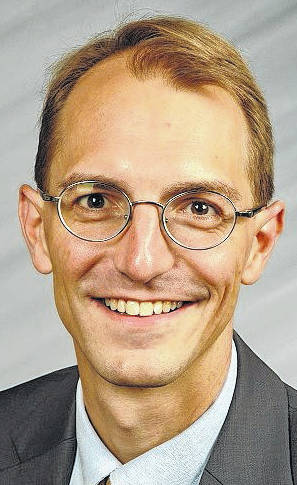
“To give victory to the right, not bloody bullets, but peaceful ballots only, are necessary.”
— Abraham Lincoln, speech given May 18, 1858
“When annual elections end, there slavery begins.”
— John Adams, letter to George Wythe in April, 1776
Thomas Jefferson and Delaware’s own Rutherford B. Hayes were elected by single vote margins through the 1800 Electoral College and the 1876 Electoral Commission. No fewer than five Congressional races have been decided by a single vote. No story, however, illustrates the power of every vote better than that of Indiana farmhand Henry Shoemaker. Little is known about his past, his education or, for that matter, what happened to him after the Indiana Congressional elections of 1842.
During the course of the campaign season, Shoemaker, a poor farm worker, had occasion to meet one of the candidates for state representative — a man by the name of Dr. Madison Marsh. The farmhand and the Democratic candidate hit it off, and Shoemaker promised Marsh that he would vote for him. Though Shoemaker nearly forgot it was Election Day, he left the fields early, rode his horse to his polling place and attempted to vote.
Unfortunately, the polling place was out of ballots. Undeterred, Shoemaker reportedly used pieces from other ballots and a paper bag to make his own ballot and cast his vote for Marsh. Because the vote was not on an official form, the election inspector set it aside and the race between Marsh and his opponent ended in a tie. After a lengthy court battle, Shoemaker’s improvised ballot was allowed, making Marsh the winner by one vote. But the story gets more incredible from there.
Marsh’s career as a state representative was unremarkable other than that he served at a time when state legislatures still elected United States senators. In January 1843, he took office and the Indiana legislature set to the task of selecting a senator. Through five ballots the contest was tied. On the sixth ballot, Dr. Madison Marsh changed his vote and Edward Hannegan was elected to the United States Senate by one vote.
Two years into Hannegan’s term, Congress considered whether to allow the Republic of Texas to join the Union as a state. Debates raged for months in Congress. Finally, on June 23, 1845, the Senate voted to approve statehood for Texas. The single deciding vote on that question was cast by Indiana Sen. Edward Hannegan.
The following year, 1846, saw Congress debating whether to wage war against Mexico. Party bosses polled their senators in private and found that the vote was likely to be deadlocked. But Sen. Hannegan was absent when the polling took place. He was summoned to the Capitol and cast his vote in favor of war, bringing the United States into a war with Mexico by one vote. That war resulted in control of western territory being transferred to the United States, including much of the land that now comprises California.
It is impossible to be certain that the story of Henry Shoemaker is not apocryphal, but the votes of Dr. Madison Marsh and Sen.Edward Hannegan are a matter of record. They demonstrate that every election, be it a landslide or a nail-biter, is made up of individual votes. Too precious to be wasted, too fragile to be kept — a commodity whose value can only be realized when it is fully expended.
A full week before next Tuesday’s general election, more than 66,000 Delaware County voters had already cast a vote — almost two thirds of the total number that voted in the 2016 presidential election. Despite those turnout levels, we have further proof of just how important every vote is.
A 2016 Marlboro Township tax levy finished election night with a one vote margin. A 1994 Wyoming House of Representatives race ended in a tie, with the governor deciding the race by pulling a ping pong ball out of a cowboy hat. A tied 2011 Nevada state council election was decided with a deck of cards — the winning candidate drawing a king, and the loser drawing a five. And the 2019 Magnolia, Ohio, mayor’s race was decided with a coin flip. Every vote really does matter.
More information on Henry Shoemaker can be found in Rick Beyer’s “The Greatest Stories Never Told,” a publication of the History Channel. A history of the debates surrounding Texas’ statehood can be found in Paul Wellman’s “Magnificent Destiny.”


